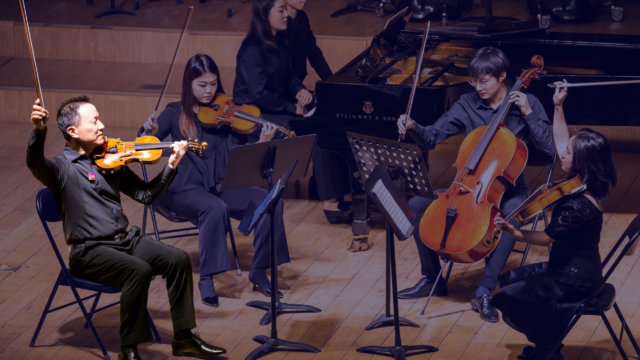EDI in Artistic Planning – Chapter 2: Strategies to Achieve More Inclusive Programming (Part 2)
In this section:
- Treat an equity mandate an as opportunity.
- Leverage the brand.
- Start where you are, and keep the momentum going.
Treat an equity mandate an as opportunity.
Research into historically excluded composers of the past and the present can re-energize musicians and staff alike.
California Symphony Music Director Donato Cabrera describes feeling liberated by the orchestra’s 2017 commitment to diverse programming. He quickly exceeded the orchestra’s agreed minimum percentage of women and composers of color.
“The EDI movement has helped me home in on what I’ve always wanted to do.”
Donato Cabrera, Music Director, California Symphony
At the New York Philharmonic, artistic advisory committee meetings are now regularly scheduled, rather than deadline driven. And more voices are in the room.
“The committee [members] have embraced the sense of adventure. They are sensitive to the cultural imperative, to expanding the legacy.”
Patrick Castillo, Vice President, Artistic Planning, New York Philharmonic
“There have always been influences from finance, marketing, and orchestra [members] in programming discussions. Through our DEI [diversity, equity, and inclusion] work we have been able to add considerations of cultural and societal impact to these conversations.”
Ugochi Onyeukwu, Director, Diversity, Equity & Inclusion, New York Philharmonic
Leverage the brand.
Some American orchestras think of adventurous programming as part of their brand. For them, revealing previously excluded composers is a natural fit.
ROCO, a chamber orchestra in Houston, has embraced diversity on stage for years and has been at the forefront among American orchestras in programming BIPOC composers and artists. All of ROCO’s conductors in 2021-22 were women, not as a campaign for diversity, but simply because they were excellent artists cultivated by conductor Mei-Ann Chen.
“ROCO is a brand match for people who cultivate curiosity.”
Alecia Lawyer, Artistic Director and Founder, ROCO
“The Taki Alsop Fellowship1 has been launching women conductors’ careers for 20 years. These things are creating ripple effects. Literally my network is from that. Marin [Alsop] broke the glass ceiling. Now how can I make it easier for others, including championing women composers? And the Chicago Sinfonietta’s Freeman Fellowships,2 launched in 2008 for composers, musicians, conductors, and administrators. These are creating ripple effects throughout the industry.”
Mei-Ann Chen, ROCO Artistic Partner and Music Director, Chicago Sinfonietta
Chicago Sinfonietta finds that because they are known for inclusive programming, exciting projects come their way—like violinist Rachel Barton Pine bringing Florence Price’s Violin Concerto No. 2, or cellist Inbal Segev bringing Anna Clyne’s DANCE.
“Our audiences have come to expect the unexpected, to be challenged.”
Gary Zabinski, Director of Artistic Operations, Chicago Sinfonietta
Start where you are, and keep the momentum going.
Starting small for easy wins can be wise, as a step on the path toward a more truly equitable future. Those who have traditionally programmed Black History Month or MLK Day concerts can avoid tokenism by extending diverse programming into other parts of the calendar; deepening and expanding their relationships with BIPOC composers and guest artists and community partners; and commissioning new works.
“More interesting is for us to make the season opener a statement of ‘who is invited,’ rather than putting certain music into a prescribed month.”
Blake-Anthony Johnson, CEO, Chicago Sinfonietta
Footnotes:
Jump to another page:
- Introduction
- Foreword from Contributing Author Kerrien Suarez
- Foreword from Contributing Author Patrick Castillo
- Chapter 1: Why Bring an Equity Lens to Artistic Planning?
- Chapter 2: Strategies to Achieve More Inclusive Programming (Part 1)
- Chapter 2: Strategies to Achieve More Inclusive Programming (Part 2)
- Chapter 3: Overcoming Challenges
- Chapter 4: Factors for Success
- Conclusion: The Path Ahead
- Footnotes, Catalyst Resources from the League, About the Lead Author, and Acknowledgements
Related
-
Learn | Equity, Diversity & Inclusion
Strategic Social Media for Today’s Orchestras
-
Learn | Artistic Planning
Music Director Search Handbook
-
Learn | Equity, Diversity & Inclusion
Discover the Power of Inclusion in Orchestra Culture
Become a member
Thank you for your interest in the League of American Orchestras! We are dedicated to advancing the orchestral experience for all.
Join Now
